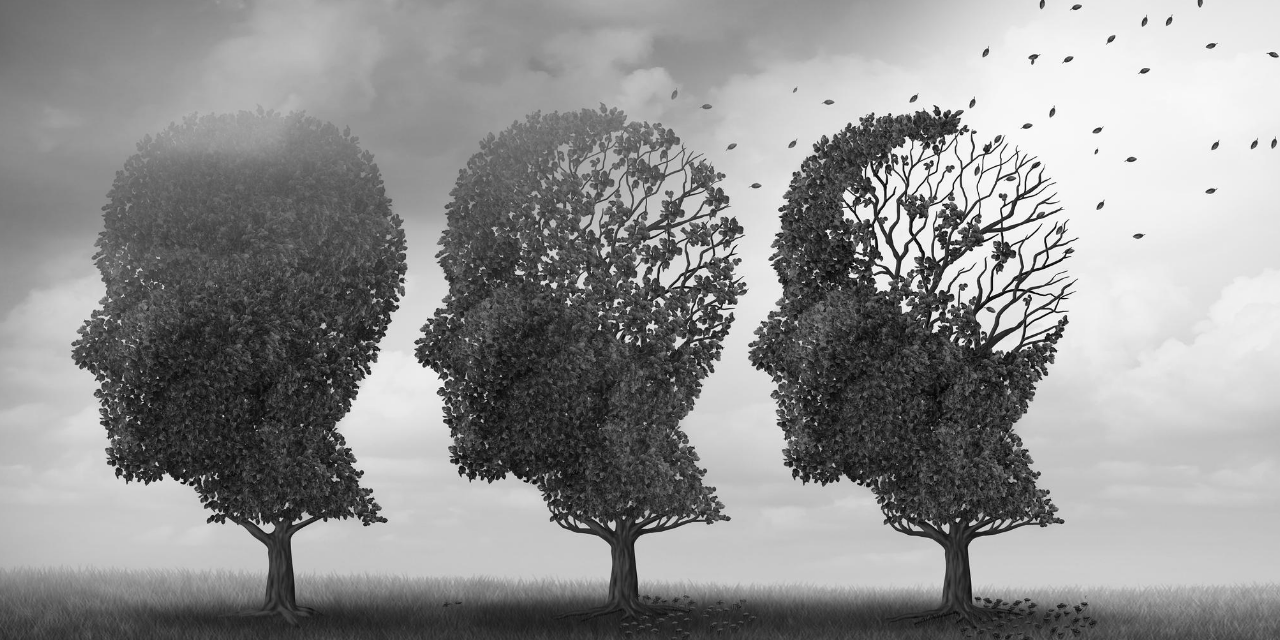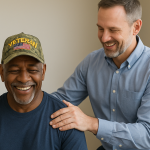
Neurocognitive Disorders in Society

Throughout history, there has been a debate of where the seat of intelligence and cognition lives, with Hippocratic doctors arguing in favor of the brain, while Aristotle argued in favor of the heart as the dominant organ for sensation, cognition, and movement. Over time, the brain’s dominant role in cognition has become more apparent, and this has been depicted in the history of the arts. With the association of the front of the brain and higher intellectual faculties, classical portraits of gods, heroes, and famous writers and artists usually show a high forehead, in contrast to both lower-class individuals and women, both of whom were usually depicted to have retreating foreheads. We obviously know today there is no difference in intelligence or IQ between genders; however, it is interesting that research has shown that men and women use different areas of their brains to perform certain cognitive functions.
Episodic Memory
Cognition involves a combination of higher-level functions in the brain. One common function people often have complaints about is memory. We have a number of types of memory. Episodic memory refers to memory of specific events of the past, such as what you did this morning. Episodic memory is often a defining feature of early-stage typical Alzheimer’s disease, and is also frequently observed in non-Alzheimer dementias. Episodic memory is the most common reported problem in a cognitive disorders clinic. Episodic memory can also be divided into retrograde and anterograde memory. Retrograde memory is the ability to remember past events, while anterograde memory is the ability to acquire new memories. Except for rare examples of highly restricted medial temporal lobe lesions causing pure anterograde deficits, both anterograde and retrograde memory are affected simultaneously in most disorders impacting memory, including Alzheimer’s disease. Conversely, semantic memory refers to knowledge of facts, concepts, and objects. For example, that London is the capital city of England, or that a dog says bark, are examples of semantic memory.
Someone in the world develops dementia every 3 seconds. Worldwide, an estimated 50 million people are living with dementia. These numbers are projected to reach 82 million by the year 2030 and 152 million by 2050, with the majority of individuals coming from low- and middle-income countries. In the United States, approximately 6 million people are living with dementia, with Alzheimer’s disease accounting for up to 70% of these cases, followed by vascular dementia. While the number of adults living with dementia around the world is expected to grow exponentially by 2050 with increased life expectancy, cases of dementia for adults under the age of 65 has been significantly decreasing.
A number of aspects of cognition can be negatively impacted by dementia, such as attention, learning and memory, reasoning and executive functioning, perceptual abilities, language, as well as behavioral and psychosocial. The signs and symptoms of dementia can differ depending on the cause and stage of dementia. For example, individuals with behavioral variants of frontotemporal dementia and Huntington’s disease may experience behavioral changes and depression; individuals with primary progressive aphasia experience gradual loss of language function but with relatively preserved memory, and individuals with vascular dementia often have symptoms such as dysarthria and dysphagia.
Symptoms of Dementia
In general, one of the earliest complaints patients with dementia have is difficulty with memory. difficulties. However, many people, as they age, have some form of memory difficulty that does not progress to dementia. Common signs and symptoms of early dementia are:
- Easily distracted
- Decreased processing speed
- Difficulty multitasking
- Episodic and working memory problems
- Difficulty learning new information
- Difficulty setting goals and plans
- Poor judgment and impaired reasoning/problem-solving ability
- Lack of social inhibition/appropriateness
- Lack of mental flexibility
- Inability to recognize common objects or faces
- Visuo-spatial difficulties
- Language difficulties
- Anger and aggression
- Increase in anxiety
- Repetitive actions
- Sleep disorders
- Mood swings
- Loss of motivation
There is an increasing demand for health care providers to increase their competency in detection of neurocognitive disorders. Most testing required to assess for cognitive decline is easily accessible and easy to perform at the bedside. While some causes of dementia are nonmodifiable, such as genetics and age, many risk factors of dementia can be decreased by lifestyle modifications, such as appropriate diet and exercise. The earlier we can detect subtle signs of cognitive decline, the earlier we can implement strategies to try to improve the modifiable risk factors of dementia.
As we continue to learn and understand the science of neuroplasticity in its relationship to neurodegenerative disorders, our hope in the future is we can directly perform treatments to the brain to both slow down and reverse the brain’s degeneration process.
References:
- Alzheimer’s Association. (2018). 2018 Alzheimer’s disease facts and figures. Alzheimer’s & Dementia: The Journal of the Alzheimer’s Association, 14, 367– 429.
- Alzheimer’s Disease International. (2015). World Alzheimer Report 2015: The global impact of dementia. London, United Kingdom: Alzheimer’s Disease International.
- Finger, S. History of neuropsychology. Neuropsychology Handbook of Perception and Cognition. 1994,1-28.
- Stern, Y. (2012). Cognitive reserve in ageing and Alzheimer’s disease. The Lancet Neurology, 11, 1006–1012.
- Woods, B., Aguirre, E., Spector, A. E., & Orrell, M. (2012). Cognitive stimulation to improve functioning in people with dementia. Cochrane Database of Systematic Reviews, 2012(2), 1–81.
- World Health Organization. (2017). Dementia: Fact sheet. Retrieved from
- http://www.who.int/mediacentre/factsheets/fs362/en/
- World Health Organization and Alzheimer’s Disease International. (2012). Dementia: A public health priority. Geneva, Switzerland: World Health Organization.
- http://apps.who.int/iris/bitstream/handle/10665/75263/9789241564458_eng.pdf? sequence=1

















